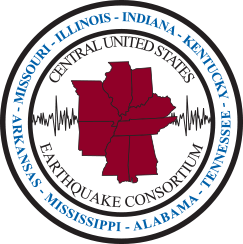An earthquake can strike without warning and cause serious disruption, but that doesn’t mean you can’t be prepared for potential impacts, including financial ones. One tool for being financially prepared is earthquake insurance, an add-on or separate policy from your traditional homeowners or renters insurance policy. Consider the information and resources provided below as part of your overall planning to minimize financial hardship following an earthquake.
What is earthquake insurance?
Earthquake insurance is an insurance policy that is separate from your standard homeowners, rental, or business insurance policies. It provides additional coverage when you are impacted by an earthquake. Because there are many variables to consider, such as deductibles and coverage options, you should reach out to a private insurance provider to learn more about earthquake insurance policies and options. As with all types of insurance, it can be beneficial for you to shop around and compare rates, deductibles, coverage, etc.
Why might I need earthquake insurance?

Almost all homeowners or renters insurance policies have specific exclusions for damages caused by an earthquake (or ground movement, in general). This means you will likely be responsible for all of the cost to repair your home and replace your belongings if an earthquake strikes. Earthquake insurance can help you cover these costs and begin to recover more quickly after an earthquake.
Who should consider earthquake insurance?

Similar to flood insurance, if you live, have property, or own/operate a business in an area prone to earthquakes, earthquake insurance should be something you consider and research as part of your overall disaster and financial preparedness plans.
Ask yourself: If a damaging earthquake were to occur, do I have the resources to rebuild and recover? If the answer is no, consider investigating earthquake insurance options.
What kind of earthquake insurance do I need?
The most common type of earthquake insurance is a traditional add-on policy, which has separate coverage details and deductibles than the primary policy it falls under. There are also other policy types, such as a stand alone policy, which is purchased irrespective of other policies. A relatively new type of insurance, called parametric earthquake insurance, is designed to provide funds for your recovery when certain variables are met. Research these options to find out which makes most sense for you.
Won’t the government help me after an earthquake?
Not necessarily. After a disaster such as an earthquake, local, state, and federal agencies work to assess the extent of damage. Though communities and individuals may be significantly impacted, the costs of cleanup, restoration of services, and recovery are not guaranteed to be covered by the federal government. Also, any assistance received may be far less than the amount of loss you incur. Earthquake insurance is an option that can help bridge that gap.

Other Financial Preparedness Resources
Use the links below to find out more about earthquake insurance and financial preparedness steps you can take to reduce potential impacts from earthquakes or other disasters.
State Department of Insurance
Individual states regulate insurance practices and providers through a department of insurance. Some states, such as Missouri, also provide earthquake specific guidance for consumers and insurance providers. Check with your state government’s insurance commissioners office or the National Association of Insurance Commissioners website for state-specific resources.
Insure Against Earthquakes Website
Developed by the Cascadia Region Earthquake Workgroup (CREW), the “Insure Against Earthquakes” website is packed with insurance and financial preparedness resources for homeowners and renters.
California Earthquake Authority
Although not specific to the central and eastern United States, the California Earthquake Authority (CEA) has numerous resources and a variety of information about earthquake insurance.
Federal Emergency Management Agency
Through the National Earthquake Hazards Reduction Program, FEMA provides fact sheets and other resources on risk reduction topics such as earthquake insurance and financial preparedness.
QuakeSmart
With support from FEMA, the Federal Alliance for Safe Homes (FLASH) has developed a program called QuakeSmart to assist businesses in becoming prepared for earthquakes.
Ready.Gov
As the federal government’s primary resource on individual and community disaster preparedness, Ready.gov has a number of financial preparedness resources you may find beneficial.
